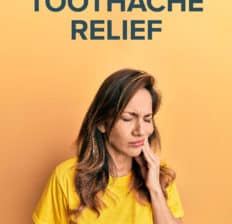This Dr. Axe content is medically reviewed or fact checked to ensure factually accurate information.
With strict editorial sourcing guidelines, we only link to academic research institutions, reputable media sites and, when research is available, medically peer-reviewed studies. Note that the numbers in parentheses (1, 2, etc.) are clickable links to these studies.
The information in our articles is NOT intended to replace a one-on-one relationship with a qualified health care professional and is not intended as medical advice.
This article is based on scientific evidence, written by experts and fact checked by our trained editorial staff. Note that the numbers in parentheses (1, 2, etc.) are clickable links to medically peer-reviewed studies.
Our team includes licensed nutritionists and dietitians, certified health education specialists, as well as certified strength and conditioning specialists, personal trainers and corrective exercise specialists. Our team aims to be not only thorough with its research, but also objective and unbiased.
The information in our articles is NOT intended to replace a one-on-one relationship with a qualified health care professional and is not intended as medical advice.
Home Remedies for Toothache Relief
August 21, 2023

If you’ve ever had a toothache or you have a young child or a teething baby who has a toothache, you know that it can be painful and make things miserable. Thankfully there are several natural ways to achieve toothache relief.
Read on to learn how to achieve toothache relief, along with more info on this uncomfortable oral issue.
Natural Toothache Relief Options
1. Clove Essential Oil
Essential oils are known to help with toothache relief, and the best essential oil for toothaches, according to research, is benefit-rich clove oil. The Journal of Immunotoxicology published the first study proving that the eugenol in clove oil is indeed a powerful anti-inflammatory.
Clove is widely accepted as a reliable solution for dry socket and for relieving the pain and discomfort associated with various dental disorders. The Journal of Dentistry, for instance, published a study in 2006 that revealed clove essential oil had the same numbing effect as benzocaine, a topical agent commonly used before needle insertion.
Once you get a small bottle of clove oil, simply take just one drop, and rub it right on the toothache area. For teething babies, mix the clove oil with an equal amount of coconut oil, and then use that mixture to rub it right on the area.
2. Sea Salt
The benefits of sea salt include its natural antibacterial activities, so using sea salt in the painful area by gargling and swishing with water can actually have an analgesic effect.
Rather than using table salt, however, it’s best to use sea salt or Himalayan salt, which has more than 60 trace minerals and can aid in toothache relief.
To do a sea salt water rinse, mix a teaspoon of salt in a cup of warm water. Gargle the solution in your mouth for about 30 seconds, and then spit it out. This can help reduce inflammation and provide some toothache relief.
3. Peppermint Oil
If you really want to soothe or numb the area, use peppermint oil. Peppermint oil contains menthol, which can help numb that area. In addition, a 2013 study concluded that “peppermint, tea tree and thyme oil can act as an effective intracanal antiseptic solution against oral pathogens.”
Simply mix peppermint oil with coconut oil at a 1:1 ratio and rub on the gum area.
4. Garlic
Garlic has antimicrobial properties that can help fight infection, and research shows that thanks to its active ingredient allicin, it can help alleviate oral pathologies.
Crush a garlic clove, mix it with a bit of salt and apply it to the affected tooth. Be careful as garlic can be strong and may cause a burning sensation.
5. Vanilla Extract
Research shows that vanilla extract “demonstrates the presence of essential anti-microbial agents in it, making it a potent, potential dental biomaterial with a positive and benefitting effect on the oral micro-environment.” In addition, vanilloid, found in vanilla extract, is used to treat dental pain, helping provide toothache relief.
Soak a cotton ball in pure vanilla extract, and apply it to the painful area. Vanilla contains alcohol, which can numb the pain.
6. Onion
Chewing raw onion can help kill germs and provide some pain relief due to its antimicrobial properties. It’s also been used traditionally to help treat oral health problems.
7. Cold Compress
Applying a cold compress to the outside of your cheek for about 15 minutes can help reduce pain and swelling and provide toothache relief.
8. Turmeric
Turmeric has natural anti-inflammatory and analgesic properties that make it a great option for natural toothache relief. Curcumin, its active ingredient, is especially beneficial for oral health and can inhibit oral bacteria growth.
Make a paste using turmeric powder and water, and apply it to the affected area.
9. Ginger
Ginger has anti-inflammatory properties that give it a pain-lowering effect. In fact, researchers noted that it “may be effective in the improvement of inflammation, oxidative, and periodontal status in [type 2 diabetes mellitus patients] with [chronic periodontitis].”
Chew on a small piece of fresh ginger, or apply ginger juice to the affected area.
10. Cucumber
Cucumber nutrition makes it an analgesic that can help provide toothache relief, and it’s long been used to soothe pain and provide other therapeutic benefits.
Place a cold slice of cucumber on the affected area. This can help reduce inflammation and numb the pain.
11. Thyme Oil
Research relays that “thyme oil exhibits antibacterial activity and has been useful in dental practice. A component of thyme, known as thymol, appears to inhibit growth of oral pathogens in the mouth and in combination with other essential oils, may reduce dental caries.”
Further studies show that thyme oil can fight against tooth bacteria decay.
You can use it along with other essential oils as a mouth rinse to help relieve tooth pain and fight bacteria.
12. Aloe Vera
Aloe vera benefits oral health in many ways, which is why it has been used quite a bit in dentistry. In fact, aloe vera mouthwash has been confirmed as a natural alternative to chemical mouthwashes.
Thanks to the antiplaque and antibacterial efficacy of aloe vera, it can both prevent and help treat tooth pain.
When to See a Dentist
Remember that these remedies are not a substitute for proper dental care. If your toothache persists or worsens, it’s important to see a dentist to identify and treat the underlying issue causing the pain.









